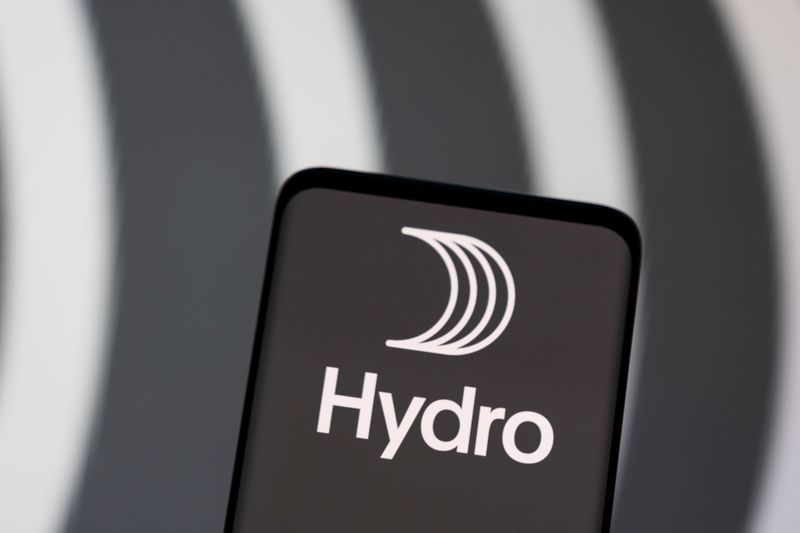By Gwladys Fouche
OSLO (Reuters) -Aluminium maker Norsk Hydro (OTC:NHYDY) proposed an extra dividend and offered share buybacks as it reported quarterly profit that met expectations, sending its shares higher on Friday despite warning of uncertainty amid threats of gas rationing in Europe.
Adjusted earnings before interest, taxes, depreciation and amortisation (EBITDA) rose to 11.6 billion crowns ($1.16 billion) in April-June from 6.6 billion crowns a year earlier. A company-provided analyst poll forecast 11.6 billion on average.
Norsk Hydro benefited from higher prices for aluminium and alumina, which is used to make aluminium, saw gains from currency effects and reported higher margins in the division that makes products by extrusion, it said, although high raw material and fixed costs offset some of those gains.
Hydro will offer an extra cash dividend of 3 billion crowns, or 1.45 crown per share on top of the paid dividend of 5.40 crowns per share in 2021, and share buybacks of 2 billion crowns over the next 12 months, pending approval from shareholders.
Its shares were up 4.6% at 0832 GMT, outperforming an Oslo benchmark index but still down 19% so far this year.
However, the company warned of "market uncertainty" with rising energy prices and a softening market for aluminium products.
"Since the invasion of Ukraine, we see a new reality and the changes are happening faster than before," Chief Financial Officer Paal Kildemo told an earnings presentation.
To cope, it said it would continue its cost-cutting programme, focus on producing aluminium with a lower carbon footprint and expand its work on producing renewables.
Several of Norsk Hydro's facilities in Europe depend on gas for fuel, in particular its extrusion cast-houses and aluminium recycling plants, Kildemo told Reuters.
"If there is rationing or power cuts, and depending on whether it is a broad, European-wide impact or whether it is a country-by-country impact, Hydro would seek to produce at fewer sites or use other alternative fuels," he said.
At some sites, liquefied petroleum gas could replace natural gas but "for most of our operations, there is no contingency alternative if gas is cut," he said, adding the impact would depend on how clients ranging from automakers to construction firms responded.

"There is no point in us producing if there are no automotive producers that want to buy parts," he said, adding that Norsk Hydro would have to adjust capacity after assessing any such changes in customer demand.
($1 = 9.9819 Norwegian crowns)